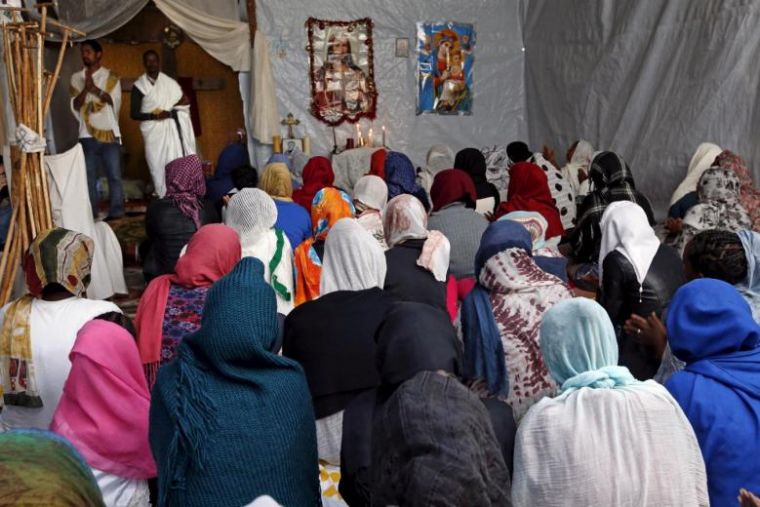Children, Christian families being arrested in Eritrea for praying to Jesus

Eritrean officials have previously arrested faithful Christians who go to church services and bible studies because of the latter's praying. Now, these Eritrean officials are going further as they have developed a new scheme of arresting Christians in their very own homes.
These officials gather all members of a Christian family, even the children, so long as they live in a family of Christians, according to human rights activists. The Christian persecution in Eritrea has not been a new issue as it has been going for the past seven months already.
"Since May of this year, nearly 200 Christians have been arrested," said Todd Nettleton of Voice of the Martyrs USA in an interview with Mission Network News. "The interesting thing about this - they have shifted tactics. Instead of just raiding church services or bible studies, now the government is going to the homes of Christians, and they're arresting the whole family."
In Eritrea, there are only three "approved" churches that the government endorses: the Orthodox Tewahedo Church, the Eritrean Catholic Church, and the Evangelical Lutheran Church. Meetings for other churches outside these three are strictly prohibited by the government.
If found doing so, Christians face horrible punishment. One of these is being imprisoned in a shipping container which has no plumbing. Not only is there a limited supply of air, space, water, and food, but this also means that the container is easily affected by the weather, being too cold in the winter and too hot in the summer.
Despite the risk of being persecuted, Nettleton mentions that the Christians still continue to meet. Of course, they do not do in public as they have to resort to some "underground" tactics to be able to meet successfully without being seen.
"One of the amazing things about the Eritrean Church is that they continue to serve the Lord; they continue to meet together for worship," said Nettleton. "The churches that were closed moved almost immediately into a house church, underground church type of activity."











